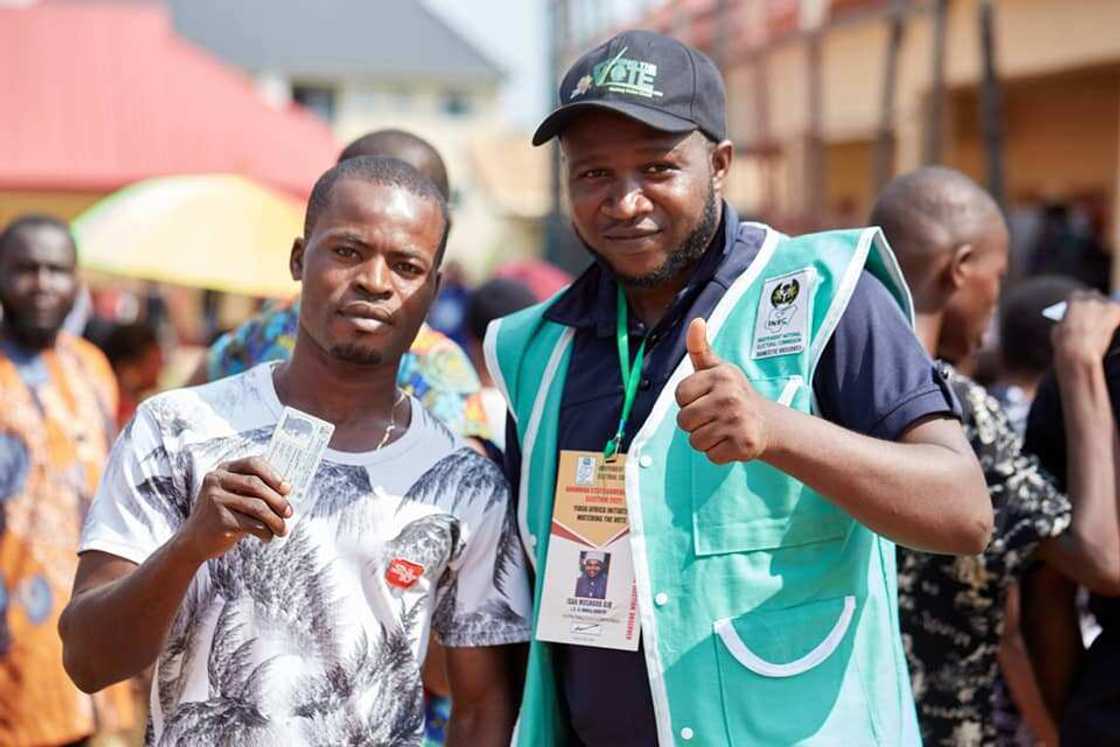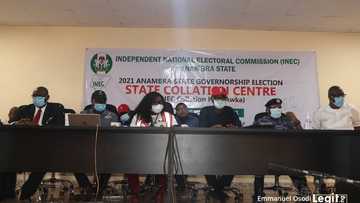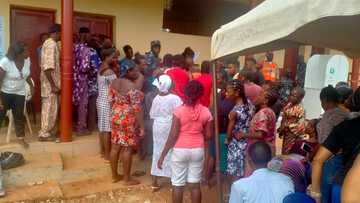OPINION: Anambra: Cautious Optimism on Election Technology by Moshood Isah
Editor's note: Moshood Isah, the Media Officer of Yiaga Africa who just observed the just concluded Anambra governorship election, writes on the adoption of new technologies by the Independent National Electoral Commission to enhance the electoral process. He tweets @Moshoodpm
Recent elections in Nigeria have continued to reveal how increasingly difficult it is to manipulate the process either by politicians or electoral officials. This may not be unconnected to the improving synergy between electoral stakeholders and continuous deployment of technology to enhance further transparency while blocking loopholes that can be exploited for electoral manipulation.
There is indeed value in adopting new technologies to enhance the credibility of the electoral process - from the deployment of Smart Card Reader in the 2015 general elections to the introduction of the INEC Results Viewing Portal (IREV) in 2020, which has largely improved the transparency of the results declared at the polling units and now the introduction of the Bimodal Voter Accreditation System (BVAS).

Read also
Coca-Cola’s Project EQUIP Launches in Kano: Here Are 3 Areas the Initiative is Set to Tackle

Source: Facebook
In the Edo and Ondo governorship election held in 2020, citizens could view election results as early as 4 pm as over 90% of results were already at the portal due to the deployment of the Z-pad that was used to snap and send results to the INEC result viewing portal. This continues to increase transparency and citizens’ confidence in the process.
Also, election results in recent times seem to be “incontestable” in courts as the deployment of these technologies has made it difficult to manipulate the process, which has reduced the number of petitions arising from elections. This is also the case with the just concluded Anambra governorship election as some candidates have already accepted the results and congratulated the winner of the election.
PAY ATTENTION: Subscribe to Digital Talk newsletter to receive must-know business stories and succeed BIG!
Also, the INEC official result of the 20 local government areas released is consistent with reports by the Watching the Vote (WTV) project of Yiaga Africa, a foremost independent election observer group, proving that the election results for Anambra were not manipulated after it left the polling units to collation centres. The project had deployed citizen observers to 250 sampled polling units, using the Parallel Vote Tabulation election observation methodology.
According to Yiaga Africa, had the official results been changed at the ward, local government or state collation centres, the official results would not have fallen within the Yiaga Africa WTV estimated ranges. They stated that because the official results fall within the estimated ranges, governorship contestants, parties, and voters should have confidence that the official results for the 20 local government areas as announced by INEC reflect the ballots cast at polling units on Saturday, November 6.
While the result collation process is becoming transparent through technology, there is a need for cautious optimism with the deployment of these devices due to inevitable challenges. The just-concluded Anambra governorship election has revealed that technology by itself is not the panacea to credible elections but rather its effective deployment.
An example is the introduction of the Bimodal Voter Accreditation System (BVAS) which was commended by election stakeholders. The all-in-one technology is a multifunctional integrated device that serves multiple purposes for different activities in the value chain of elections including serving as the INEC voter enrolment device for voter registration and voter accreditation, thus replacing the smart card reader, and also as the INEC Results Viewing Device.
The BVAS was first piloted in Isoko 1 State Constituency bye-election where an observation report revealed that it successfully accredited 98% of eligible voters. Consequently, the BVAS was deployed for the Anambra governorship election and was observed by Yiaga Africa to have been used through all the processes in 95% of polling units.
However, the device reportedly malfunctioned in about 45% of the polling units which led to delays in queues and extension of voting times. At some point, enthusiastic voters were reported as providing internet service through their mobile hotspots for polling officials to connect the device to ensure citizens of Anambra are able to cast their votes. Observation reports revealed that in 3% of polling units, electoral officials resorted to manual accreditation, which is a clear contravention of the electoral guidelines.
As an observer on the field, I witnessed how voters, including aged men and nursing mothers, had to stand under the scorching sun for many hours waiting for the device to be fixed so they could exercise their franchise. Thus, it's not out of place to suggest that some impatient voters may have been left frustrated without casting their votes.
In the same vein, there is a need to undertake an audit of the BVAS and ensure all the technical glitches with the device are resolved to prevent delays and possible disenfranchisement of voters in future elections. The commission must conduct a comprehensive feasibility mapping of internet service providers for locations where off-cycle elections will be conducted in the near future to prevent the recurrence of these challenges ahead of the 2023 general elections.
Finally, it is important that the National Assembly should without further delay transmit the Electoral Act (Amendment) Bill to the President for assent so as to legalise the deployment of technology, especially for electronic transmission of election results. In all, the deployment of technology in Nigeria’s election is welcome but it's a development we must approach with cautious optimism due to all mechanisms needed to put in place for effective deployment.
Disclaimer: The views and opinions expressed here are those of the author and do not necessarily reflect the official policy or position of Legit.ng.
Your own opinion articles are welcome at info@corp.legit.ng— drop an email telling us what you want to write about and why. More details in Legit.ng’s step-by-step guide for guest contributors.
Contact us if you have any feedback, suggestions, complaints, or compliments.
Source: Legit.ng





